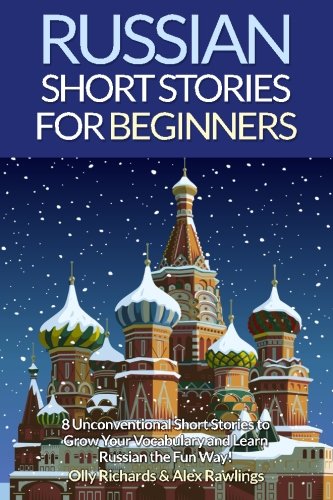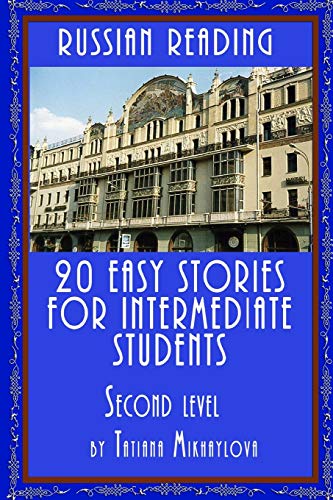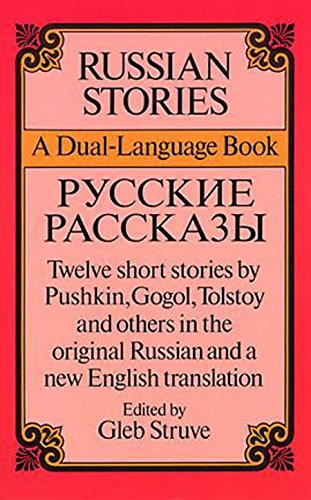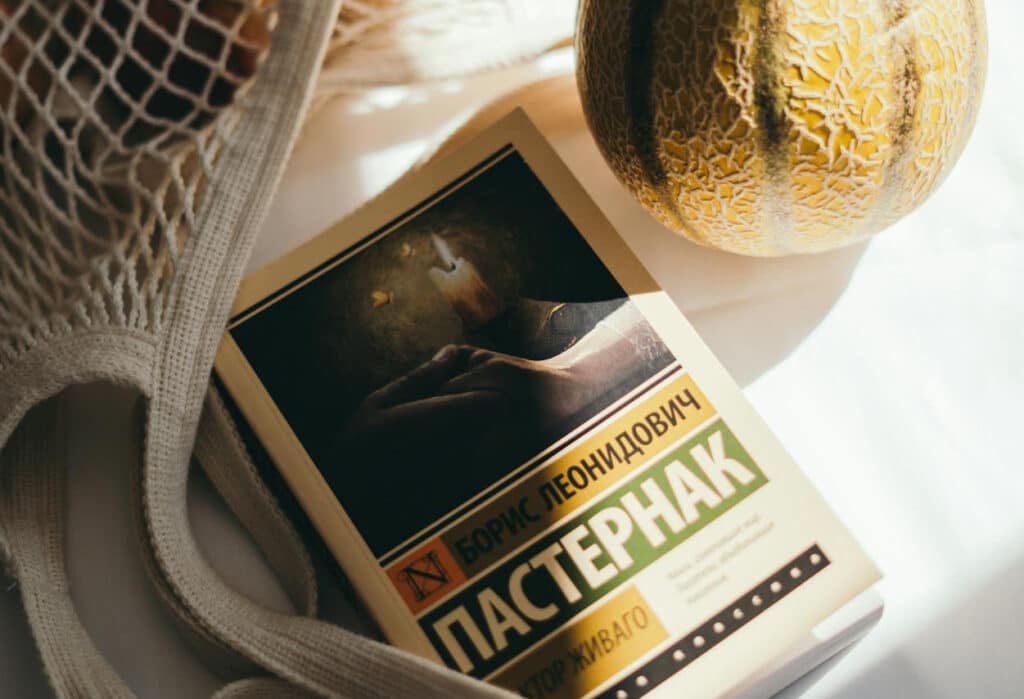
10 Best Russian Short Stories Books to Enrich Your Learning with Russian Culture
Reading in Russian can be a little scary, but Russian short stories are the best place to start.
That’s why we’ve rounded up the best Russian short stories books, so you can infuse your Russian language journey with Russian culture, Russian sensibility and classic Russian stories.
Read on for 10 of the best books of Russian short stories. We included short stories specifically for learners and some great choices for all learning levels from beginner to advanced.
Contents
- 1. “Cказки на ночь” (“Bedtime Fairy Tales”)
- 2. “Easy Reading in Russian: Short Stories for Children”
- 3. “Russian Short Stories for Beginners”
- 4. “Russian Reading: 20 Easy Stories for Beginners”
- 5. “Я люблю фрукты и овощи” (“I Love to Eat Fruits and Vegetables”)
- 6. “Russian Reading: 20 Easy Stories for Intermediate Students”
- 7. “Learn Russian with Fairy Tales: Interlinear Russian to English”
- 8. “Learn Russian with Short Stories”
- 9. “Russian Stories: A Dual-language Book”
- 10. “Short Stories in Russian: New Penguin Parallel Text”
- How Russian Short Stories Can Help
- And One More Thing...
Download: This blog post is available as a convenient and portable PDF that you can take anywhere. Click here to get a copy. (Download)
1. “Cказки на ночь” (“Bedtime Fairy Tales”)
Level: Beginner
In addition to foreign language learners, who else is learning to speak, read and understand Russian? Russian children! By incorporating children’s stories into your studies, you’ll get to explore beginner-friendly, easy-to-follow written Russian resources.
This book includes a collection of fairy tales that are written in Russian and translated into English. This allows beginner Russian students to better understand the context of the stories, and compare how words and phrases are used in both languages.
While there are authentic Russian stories in this collection, you might also appreciate a few familiar ones written by European authors such as Hans Christian Andersen, the brothers Grimm and Charles Perrault.
2. “Easy Reading in Russian: Short Stories for Children”
Level: Beginner
This is another title that’s meant for children learning the Russian language, but can be just as useful to adults. While the previous book offered bilingual content, this one is a notch more challenging as the text is only presented in Russian.
As such, it targets both beginner and intermediate students. However, don’t fear, the text is clear and easy to follow because it’s designed for non-Russian speakers.
Inside, you’ll find the book divided into seven chapters and 25 sub-chapters that tell the story of a young boy’s week. Along with his sister and brother, he attends school, visits his grandparents, describes his pets and more.
This is a perfect book to learn vocabulary describing objects related to home and school life, while also learning grammatical rules and seeing how words are put together properly in the Russian language.
3. “Russian Short Stories for Beginners”
Level: Beginner
Just as children grow and mature, so will your knowledge of the Russian language (as long as you nourish your mind with proper resources). Moving on from children’s books, this text will keep you entertained and motivated to learn with eight short stories from different genres.
The writers explain that after careful research about language learning, they compiled this book to avoid typical frustrations readers face, such as complicated words, long chapters and difficult-to-understand context.
The book is written for beginner and intermediate Russian learners, and the stories are carefully chosen to introduce new words gradually, while framing the context so that the words are fairly easy to comprehend without the use of a dictionary. You’ll pick up new vocabulary spanning a range of categories, with stories about history, crime, science fiction and more!
To reinforce what you’re learning, the authors include summaries and word reference lists so you can test yourself on the words after reading them in the story.
This book was co-written by polyglot Olly Richards, whose popular, story-based learning program I Will Teach You a Language might also interest you if you enjoy his book. His focus is on making language learning fun and accessible even to people with the busiest schedules. He provides firsthand guidance for effectively memorizing and understanding a foreign language, as well as some specific blogs and podcasts for Russian learning topics.
4. “Russian Reading: 20 Easy Stories for Beginners”
Level: Beginner
This book presents 20 easy stories for beginner Russian students. Every story focuses on a certain topic, such as names, family members and friends, pets, school, food and the weather.
This is a great resource for learning verbs, as they’re all written in the present tense. Beginners won’t get overwhelmed with the Russian language’s many (often confusing) tenses.
Although this book is designated for beginners, it’s actually a great tool for transitioning to the intermediate level. That’s because you’ll not only find new words and improve your grammar, but you’ll also focus on your reading comprehension and start honing your writing skills with content-related questions.
There are specific questions after every single story in the book that not only focus on the theme, but are also designed to improve the reader’s conversational skills. The questions focus on family, friends and other personal interests common to regular, everyday conversations. This helps you to formulate the Russian you’ve learned into phrases and sentences that you can say out loud and also write down.
5. “Я люблю фрукты и овощи” (“I Love to Eat Fruits and Vegetables”)
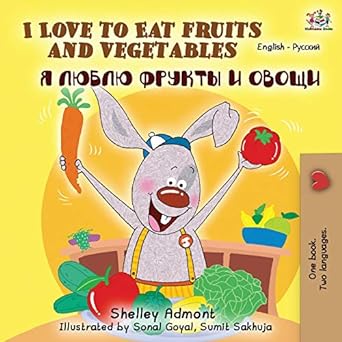
Level: Beginner
Addressing a common problem that crosses all language barriers, the author of this short story helps parents deal with picky eaters. In this bilingual book, Jimmy the bunny learns to appreciate the healthier varieties of food rather than just the sweets he usually prefers.
The story is super cute and teaches Jimmy a lesson—his brothers explain that he needs to eat fruits and vegetables to grow big and strong, but he doesn’t understand the importance of that until he falls off a chair when trying to reach a jar of candy and becomes tiny! After you learn names for food in Russian, check out the other books in this series about loving parents, cleaning your room and so on to learn more Russian.
Use this book for speaking and writing practice. As the book talks about food, we would use it as a base for conversing about our favorite foods in Russian. After reading the book, we would walk around the kitchen and make lists of what we found and divide them into categories (fruits, dairy, meat, etc.). We would then formulate sentences using the food groups and even came up with silly recipes from the new words we learned!
6. “Russian Reading: 20 Easy Stories for Intermediate Students”
Level: Intermediate
This is the second book in the series to the title mentioned above. It presents 20 stories focused on everyday life in Russia, but these are more difficult and designed for intermediate Russian learners.
The authors’ aim is to help readers learn words for everyday life—as such, the content surrounds a family that lives in Moscow, the capital of Russia. Learn about their activities and experiences as you improve your knowledge not only of the language, but also of the Russian culture and way of life.
Topics center on having guests over, shopping, cooking (with an actual recipe), family outings and trips. While the first level of this series only had verbs in the present tense, the second series has verbs in the present, past and future tenses with a special emphasis on verbs of motion. There are exercises to practice verb tenses.
As in the above title, the topics are followed by 10 questions to aid in reading comprehension and practicing conversational Russian.
7. “Learn Russian with Fairy Tales: Interlinear Russian to English”
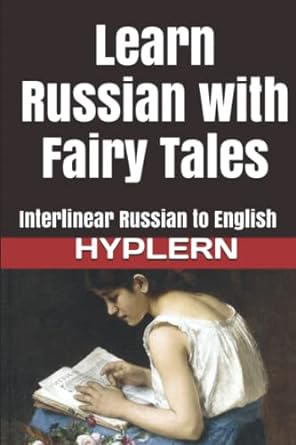
Level: Intermediate
This is a great compilation of fairy tales in Russian. You can read seven fairy tales that have been shortened for your reading pleasure and include translations. Each one is no more than 10 pages long.
Our favorite story from the book was “Никита Кожемяка” (“Nikita the Tanner”). In it, the hero defeats an evil dragon who kidnaps beautiful women with his wits rather than his physical strength.
Use this book to practice your reading skills and expand your vocabulary. These short stories are perfect for simple Russian reading practice because each word has an English translation right under it. Also, the font is big and spaced out so it’s easy to distinguish the letters from one another, even those that don’t look as familiar to you.
Plus, the book comes with a free audio download link, which lets you hear the words for yourself if you want to practice pronunciation and listening as well.
8. “Learn Russian with Short Stories”
Level: Intermediate-advanced
This bilingual collection of short stories takes a unique approach—instead of seeing a Russian text followed by an English text, you’ll find the translation immediately after every line in the book. Plus, in addition to literal translations, the authors include idiomatic translations to help with comprehension.
While the title states that the book is intended for students of all levels, we believe it’s best for intermediate to advanced students, as there are many difficult, multi-syllable words.
The stories are derived from famous Russian authors, such as Chekhov, and the best utilization of the book is to read the stories over and over until you can understand the words without having to read the accompanying translations.
9. “Russian Stories: A Dual-language Book”
Level: Intermediate-advanced
This collection features annotated works from Russia’s classic authors and poets—Gogol, Pushkin, Tolstoy and so on. Obviously, you would need to be advanced in Russian to understand the mind behind “War and Peace” in Russian!
The author made sure to design this as a tool to educate readers about Russian literature. The foreword includes a brief yet comprehensive history of the introduction of the novel in Russia. Every story has an introduction about the author and their life.
The book helps readers tackle difficult Russian words with stress marks, plus linguistic and cultural notes, a vocabulary guide and study questions!
10. “Short Stories in Russian: New Penguin Parallel Text”
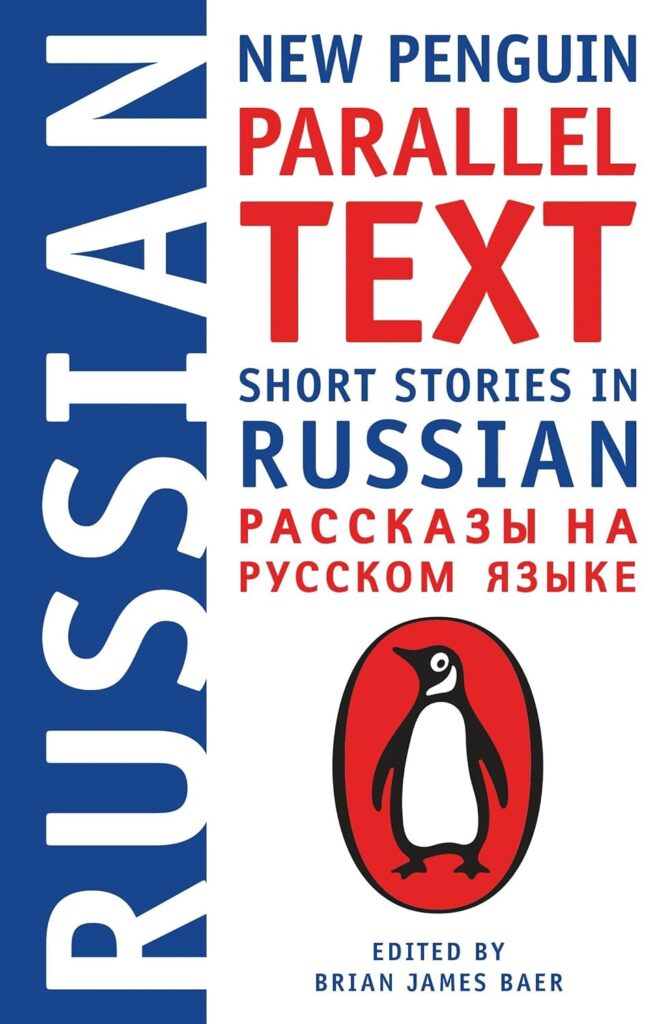
Level: Advanced
“Short Stories in Russian: New Penguin Parallel Text” is an amazing short story collection that really can satisfy the advanced Russian learner.
With side-by-side English translations, this diverse selection of Russian short stories ranged from classics to contemporary stories that give rich insights into Russian culture, and since there’s a side-by-side translation, you’ll never be lost.
The anthology spans various themes and styles, providing a rich tapestry of Russian literature for language enthusiasts to explore and enjoy.
How Russian Short Stories Can Help
There are four main reasons that stories can play an important part in the language learning process:
- Stories allow you to see correct Russian grammar, syntax, spelling and punctuation in context, rather than simply memorizing the rules of the language.
- With stories you can study at your own pace, creating your own schedule and stopping to look up words you don’t know.
- Stories familiarize you with Russian history and culture. For example, Russian fairy tales can demonstrate the values Russians want to pass down to children through the art of storytelling. Stories that involve a historical angle can teach you about specific periods in Russian history, such as World War II and the Czarist regime.
- Stories are fun and hold your attention! That means they’ll keep you engaged and motivated to keep learning Russian. They’re a great choice if you like learning with entertaining content, like the videos on FluentU.
FluentU takes authentic videos—like music videos, movie trailers, news and inspiring talks—and turns them into personalized language learning lessons.
You can try FluentU for free for 2 weeks. Check out the website or download the iOS app or Android app.
P.S. Click here to take advantage of our current sale! (Expires at the end of this month.)
After you finish all 10 books, you can feel accomplished in your Russian language progress!
These resources will help you to read, comprehend and eventually learn to speak and write in Russian. They provide a wealth of vocabulary and background into the Russian world, as well as helpful tips and tools for speaking Russian like a native.
Download: This blog post is available as a convenient and portable PDF that you can take anywhere. Click here to get a copy. (Download)
And One More Thing...
If you love learning Russian and want to immerse yourself with authentic materials from Russia, then I should also tell you more about FluentU.
FluentU naturally and gradually eases you into learning the Russian language and culture. You'll learn real Russian as it's spoken by real Russian people!
FluentU has a very broad range of contemporary videos. Just a quick look will give you an idea of the variety of Russian-language content available on FluentU:
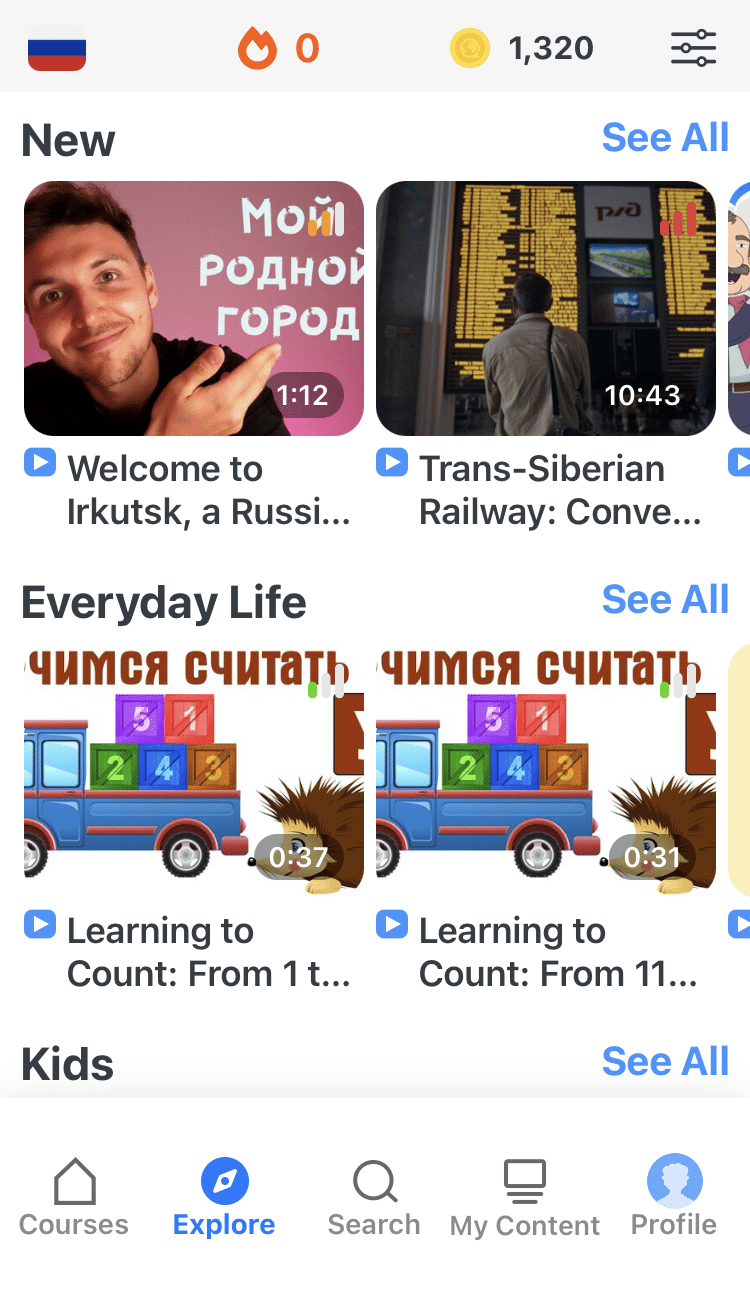
FluentU makes these native Russian videos approachable through interactive transcripts. Tap on any word to look it up instantly.
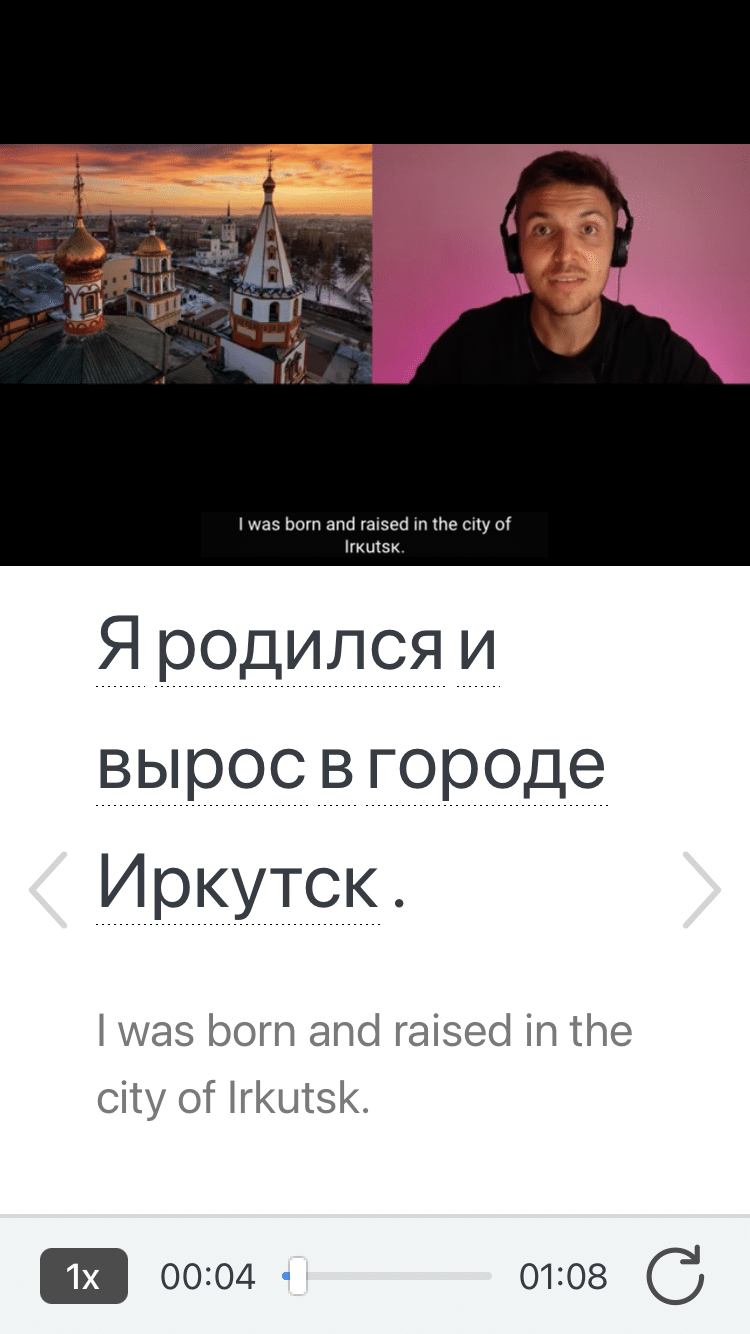
Access a complete interactive transcript of every video under the Dialogue tab. Easily review words and phrases with audio under Vocab.
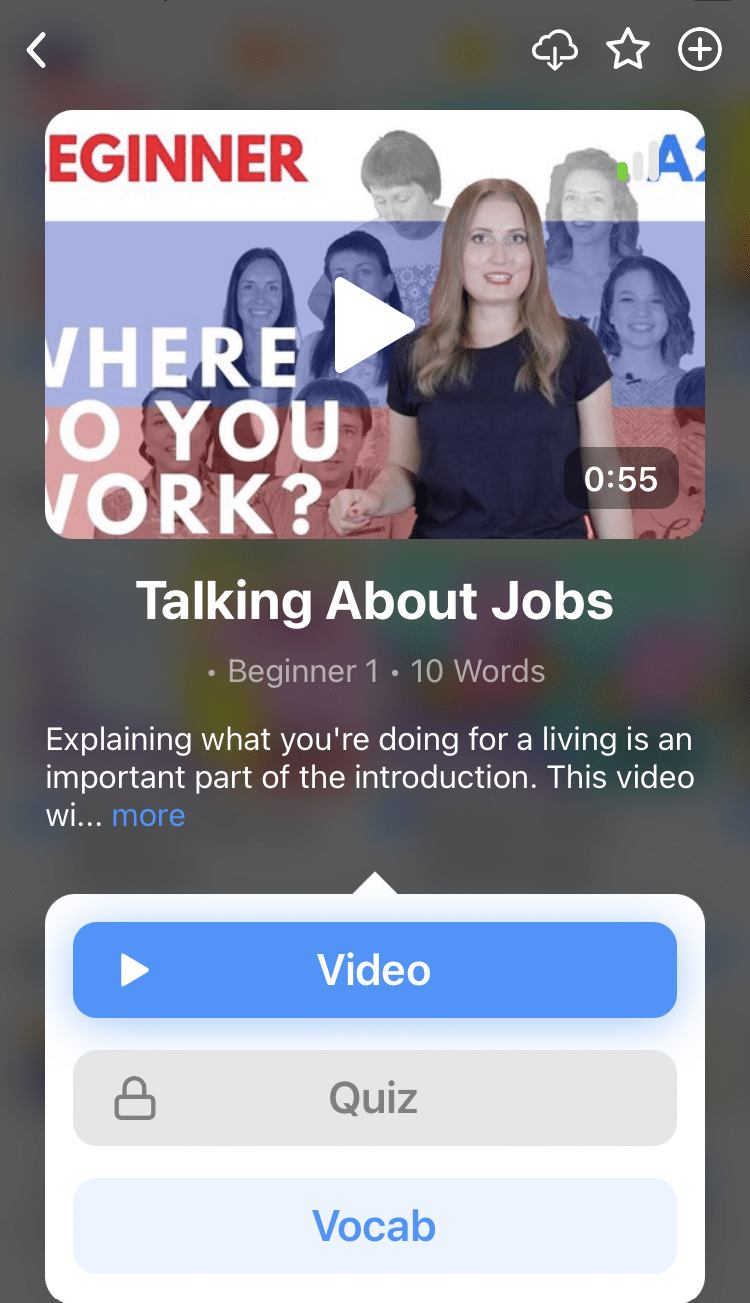
All definitions have multiple examples, and they're written for Russian learners like you. Tap to add words you'd like to review to a vocab list.
And FluentU has a learn mode which turns every video into a language learning lesson. You can always swipe left or right to see more examples.
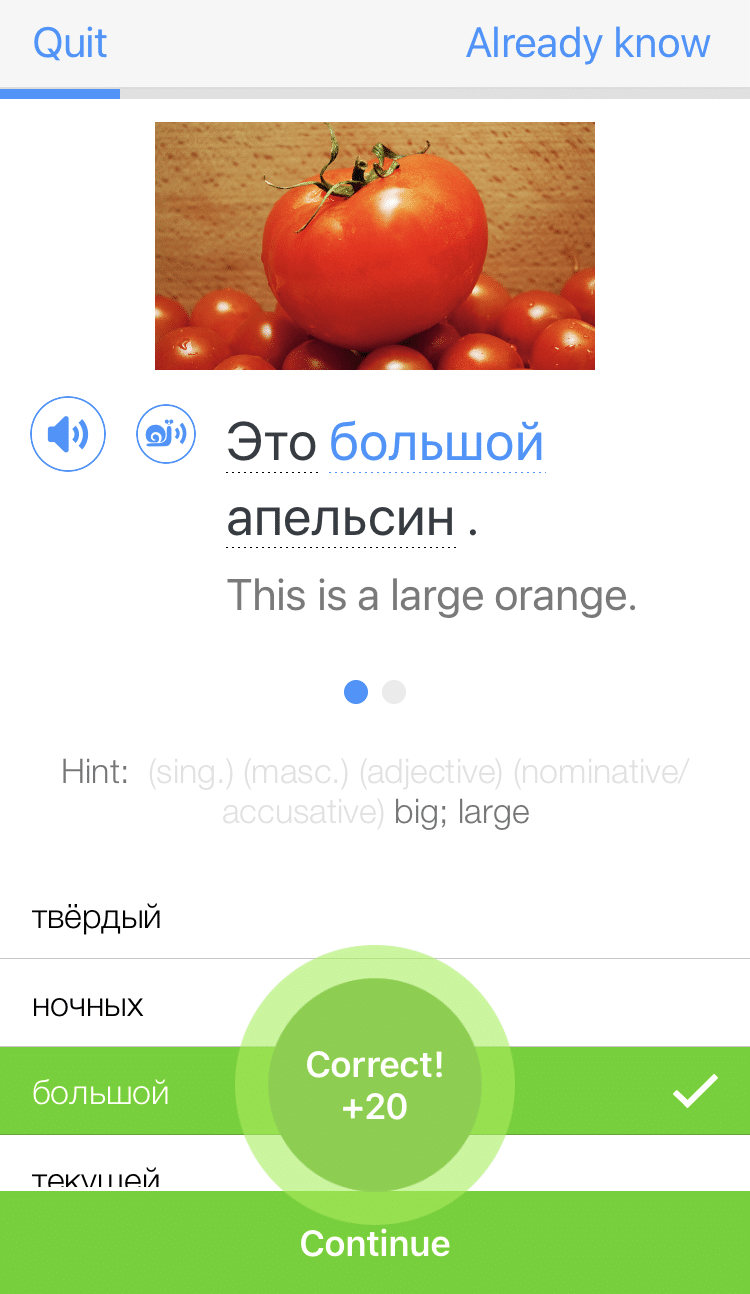
The best part? FluentU keeps track of your vocabulary, and gives you extra practice with difficult words. It'll even remind you when it’s time to review what you’ve learned. You'll have a 100% personalized experience.
Start using the FluentU website on your computer or tablet or, better yet, download the FluentU app from the iTunes or Google Play store. Click here to take advantage of our current sale! (Expires at the end of this month.)


